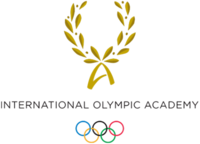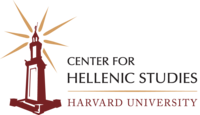12th International Scholars' Symposium on Sports, Society, & Culture
Symposium Program
11-14 July, 2023
All sessions' times displayed in EET (Greece Time)
July 11, 2023
14:00 - 16:00 Registrations (all participants must arrive to the IOA premises before 3pm)
17:00 - 17:15 Opening remarks
In a way, there is nothing surprising about Plato’s promotion of sport for women in Republic and Laws; it is logically implied by his philosophical theories. In another way, Plato’s vision of female athletes is among the most radical proposals he makes. The purpose of this paper is to examine Plato’s arguments for women in sport and reflect on its relevance in our modern world. His texts include as many misogynist as feminist comments, but Plato’s consistent view in Republic and Laws is that females deserve equal education in gymnastics (i.e. movement activities) and equal opportunity to participate in athletic contests. This position derives from the convictions that athletics serves as training for virtue and communities need to maximize the virtue of all their members. It is his vision of women in civic and military roles, specifically their need for aretē (virtue, excellence) to perform those roles, that motivates Plato to include them in sport. In our modern world, where women are citizens and rulers – and regularly participate in sport – it is worth exploring the educational link Plato saw between the two.
July 12, 2023
Women’s participation in sports was a rare activity – albeit not unknown – in classical antiquity. However, competition (agon) was not only reserved for athletic events; excellence was measured in other areas as well, such as poetic and music compositions. In this paper I will present the famous archaic poetess Sappho, whose poetry was very popular, highly appreciated and widely known even in the male milieu of sympotic occasions. I will argue that Sapphic poetry, which was to a great extent homoerotic, had ‘entered’ the male world of excellence competing, so to speak, as an equal ‘player’ with the poems of the male poets of the time putting into relief the female world that the poetess loved: a world with independent female subjectivities, full of joy, emotions, grace and beauty.
The purpose of this paper is to explore the connection between sport and self-actualization in ancient Greek mythical narratives and historical accounts of women athletes. Recent scholarship has established the significance of women's games such as the Heraia, also revealing the extent to which ancient Greek women participated in sport. However, while sport constituted a rite of passage for young women and contributed to their preparation for marriage and motherhood, it also demarcated social roles to which they could not aspire, and especially that of the citizen-soldier. Reinforced by the myth of the Amazons, the foreign women warriors who threatened Greek culture, this exclusion also invalidated discourses on gender equality as a potential Panhellenic practice. This perspective, albeit Athenocentric, co-opted women's fitness and sport for the purposes of a role dichotomy that emphasized female domesticity in the interests of the polis. By contextualizing sport within the broader framework of civic self-actualization, this analysis also sheds new light on cultural paradigms of women athletes in ancient Greece.
11:00 - 11:15 Break
From the beginning of the ancient Olympic Games and then following in the beginning of the modern Olympic Games, the ideal Olympic athlete was specifically and exclusively a man. Historically, the place of women in sport has been, for the most part, foreign at best -- from Pausanias' references to dropping women from the side of a cliff if they even observed the ancient Olympic Games, to de Coubertin's ideal that the goals that were to be achieved by the athletes through participation in the Olympic Games were not appropriate for women. The idea that sport (or sometimes even physical activity), particularly high-level competitive Olympic sport, is somehow incompatible with what women are, or what they should be, has dominated discussion of the unique issues for women in sport. Philosophies of ideal Olympic sport, and ideal women athletes, lie behind discussions of permitting women to compete, of choosing the types of sport in which women can compete, in developing judging standards for adjudicated (as opposed to refereed) sports – in attitudes to aggression, and competition, and indeed to the very existence of women's sport as a separate entity at all. This discussion has changed a bit over time, but we are still debating who is a "woman athlete" and why. Although this is still a highly contentious issue, an overview some critical reflections on these issues will be presented with the hope of generating positive and constructive celebrations of women's sport.
13:00 Lunch
17:00 - 18:30 Workshops
July 13, 2023
8:30 - 11:30 Group visit to the Archaeological Site and the Museum of Ancient Olympia
11:30 - 12:15 Break
This paper examines the relationship between a given society’s political structure and the ideological and practical attitudes towards female physical culture as practiced primarily in competitive sport. Indeed, even in the ancient world, there was a distinct connection between female athletics and politics, and this is most famously represented in the culture of ancient Sparta, as presented in the works of Xenophon, Plato, Plutarch and others, along with historical evidence from the Archaeological record. Central to the Spartan promotion of female physical training was the focus on the concept of “excellence” or aretē. Beginning with Sparta, therefore, this paper will first examine the potentially gendered political significance attributed to the ancient notion of aretē. This Spartan attitude towards female aretē will then be compared to the unique role that distinctly non-democratic nations have played in the advancement of female participation in the modern Olympics, with a focus on East-Germany and the USSR in the mid-twentieth century as well as China in the late twentieth and twenty first century. A broad historical and comparative perspective will thus allow us to closely examine the relationship between gender and equality within the political ideologies of democratic and non-democratic societies.
13:15 Lunch
17:00 - 18:30 Workshops
July 14, 2023
9:00 - 10:00 Roundtable discussion and conclusions
10:00 - 10:45 Closing ceremony of the Symposium
12:00 Departure
* The language of the proceedings is English.
** The duration of the lectures is indicative and includes time for discussion.
*** During the workshops, emphasis will be added on the ongoing dialogue between the ancient and the modern. Participants are encouraged to enrich and elaborate on this dialectic relation between the two.





